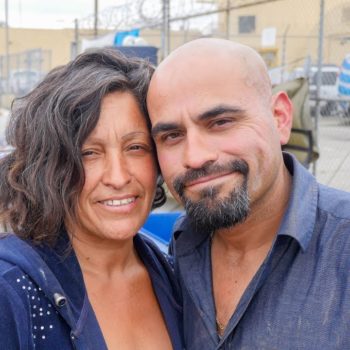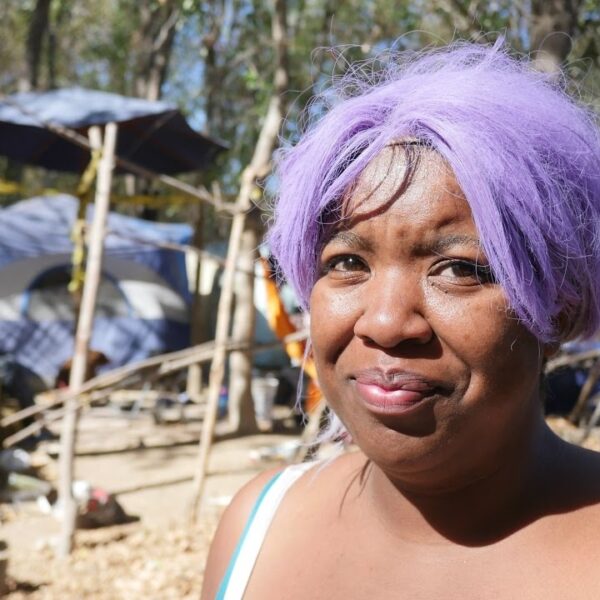Homemaker to Homeless: When Escaping One Dangerous Situation Lands You in Another One
This article contains a general discussion of domestic violence and its effects. Please take care reading. If you or someone you know needs help or wants to talk to someone, contact the National Domestic Violence Hotline by calling 1-800-799-SAFE, texting “START” to 88788, or visiting their website to start a live chat. Services are free, confidential, and available 24/7 in over 140 languages.
Domestic abuse is a leading cause of homelessness for women and children in the United States. In fact, 57% of all unhoused women in one survey reported domestic violence as the immediate cause of their homelessness. Nationwide, an estimated 80% of homeless mothers with children have experienced domestic violence.
Because abusers often closely control finances, isolate victims from their support networks, and even deliberately sabotage their ability to find work or alternative housing, survivors who can flee domestic violence too often find themselves plunged into the unfamiliar and uncertain world of homelessness. Knowing this leaves survivors with an impossible choice to make.
Anyone Can Experience Domestic Violence
While people of all genders can experience domestic violence, women disproportionately are subjected to the most severe forms of abuse. Coupled with the systemic barriers women already face due to lower wages, discrimination in hiring, lack of accommodations for caregivers, and so much more, women face extra barriers to escaping domestic violence and securing safe and stable housing.
Of course, the impact of all these forces is not distributed equally across all women. Black women, Indigenous women, trans women, disabled women, and women with intersecting identities are liable to face many more barriers to safely fleeing domestic violence than women without those identities. They may even be more likely to experience domestic violence in the first place.
The Institute for Women’s Policy Research found that while 31 percent of women in general experience domestic violence in their lifetimes, that figure rose to more than 40 percent when looking at Black women in particular.
How Does This Happen?
Domestic violence is rooted in one person’s desire to have power and control over another person or people. That can often manifest as the abuser controlling significant aspects of their victim’s lives, including whether or not they’re allowed to hold down a job, have access to money, or even maintain relationships with friends and family who could support them or offer them a safe refuge.
It’s becoming common knowledge that one of the hallmarks of domestic violence is isolating people from their existing support networks. This leaves people much more vulnerable to abuse and makes it difficult to coordinate an escape.
The way this works is so insidious that one may not even notice it is happening until the ties have already been broken. This element of domestic violence is why survivors often don’t have the option of just moving in with family members or friends for a while when escaping abusive situations. Even if you’ve managed to maintain some relationships, communicating to form an effective escape plan can be both difficult and dangerous.
It’s not uncommon for domestic violence to include financial abuse, like taking out loans or credit cards in the victim’s name or forcing them to sign financial papers without reading them. The abusive partner usually controls all the money coming into the household, leaving their victim little, if any, to control on their own or surreptitiously save up.
Abusers may also prevent their partners from taking a job at all. Or they may cause trouble at a job, like causing their partner to be consistently late in order to get them reprimanded or fired and prevent their employer from giving a good reference in the future. These tactics can leave survivors with little or no money to their name, a holey resume, and a ruined credit score, making it difficult to find housing or a job.
Sometimes, survivors of domestic violence may even be evicted or denied housing simply because they are survivors of domestic violence. Certain housing options with “zero tolerance” crime policies have been known to evict both the perpetrator and victim of domestic violence when a disturbance occurs or the abuser causes property damage.
Together, compounded by the physical and psychological effects of domestic violence, all of these factors make for a perfect storm that leaves many survivors with nowhere to turn once they manage to leave their abusive homes. Chillingly, that fact keeps countless others stuck.
Out Of The Frying Pan, Into … Another Frying Pan
Each situation of domestic violence and homelessness is unique, and if you’re wondering which one is worse, the answer may just depend on who you ask and when. At the end of the day, both situations can cost you your life.
Since domestic violence is, unfortunately, such a common experience for homeless women and families, there have been a few first-hand accounts written for Invisible People. You can read about these experiences in the survivor’s own words here, here, and here.
Escaping domestic violence is incredibly hard. It can be nearly impossible without proper support, resources, and a soft place to land. Choosing between an unsafe home and no home at all seems to be a riddle with no good answers, especially if you have children to take care of. These are facts that all survivors know intimately, while others may struggle to understand them, wondering, “Why didn’t she just leave?”
While the answers to that classic question are incredibly nuanced and unfailingly individual, maybe this outline of one of the simpler reasons can slake your curiosity enough that you can suppress the urge to ask that question out loud: If she did manage to leave, where would she go?













